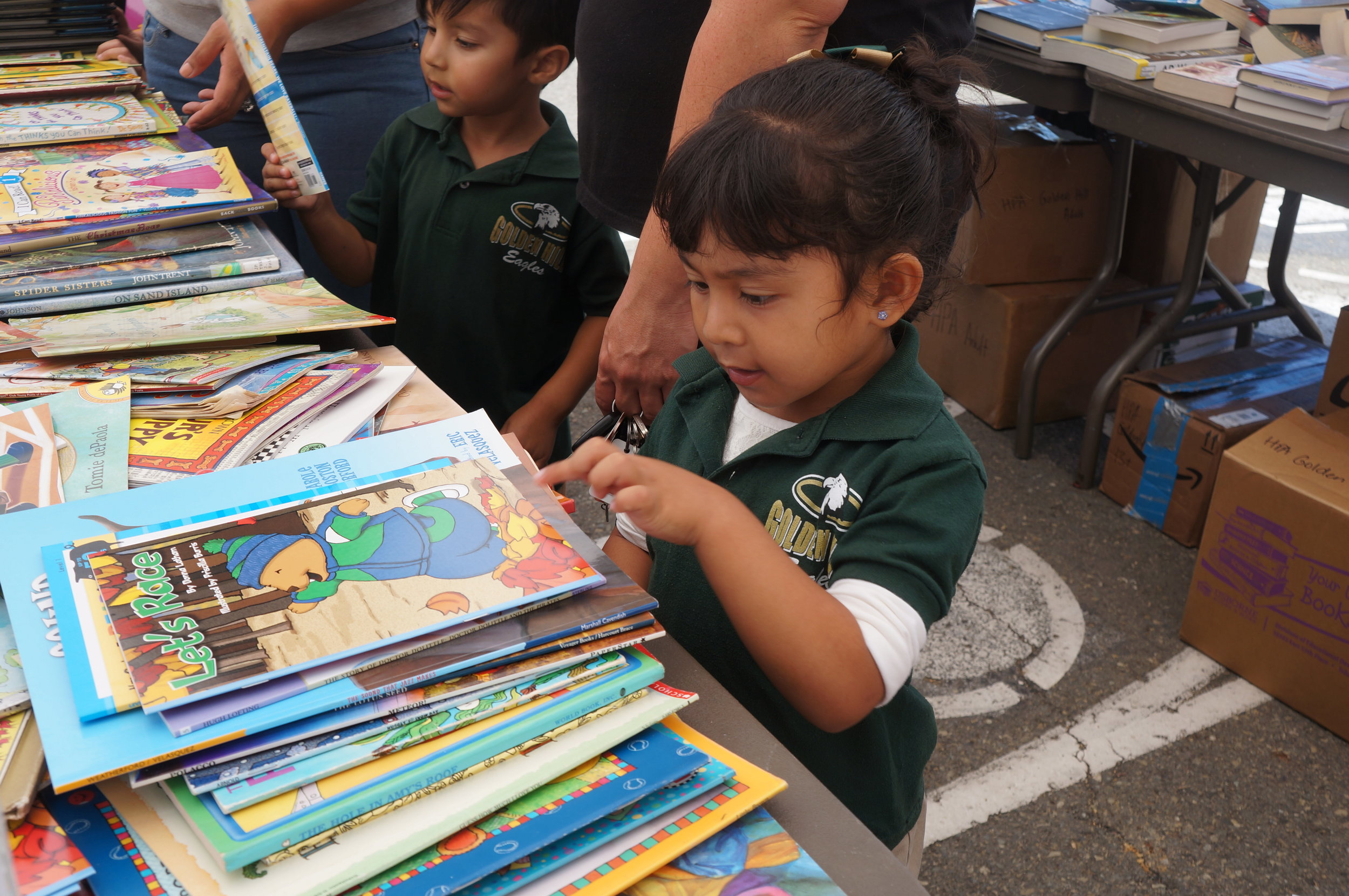By Jennifer Van Pelt
An image of a young student from Golden Hill pointing at a large pile of books at a book giveaway we hosted in 2017.
Goodnight Moon, Where the Wild Things Are, The Going to Bed Book -- these are some of the most iconic children’s books today. You may have read them to young ones before bedtime or perhaps you had them read to you when you were young yourself. However, many children don’t have books read to them before bedtime because they don’t have home libraries or books at home. Having books in the home is important not only for bedtime stories and the routine it creates for a family, but also for the educational value books can provide to developing minds.
An analysis of nearly 100,000 school children across the United States found that access to printed materials is the critical variable affecting reading acquisition. Having books easily accessible, such as in the home, helps them enjoy reading and read more frequently. For a skill as important as reading, something that can change one’s social and economic standing for years to come, frequent exposure is imperative. It’s also been noted that even allowing a child to pick out a book that they would like to read teaches them autonomy and empowerment.
Previously, having college-educated parents was thought to be the top predictor of a child’s success in school. A study at the University of Reno found that both having a 500 book library or having university-educated parents propel a child an average of 3.2 years in their education. Though 500 books is a significant investment, having as few as 20 books in one’s home library can have an impact on a child’s future education, with the impact increasing as the number of books increase.
An article from The Atlantic discusses a community with high poverty rates that was found to have only one age-appropriate book per 33 children -- all of which were coloring books. By comparison, children in a middle-class community in the same city had access to 13 books per child. By slowly building home libraries in these communities, we can help develop an interest in reading in children.
Words Alive helps our participants in all programs build their home libraries. Our Family Literacy Program students take home a new book every week, culminating in 7 new books for their home libraries by the end of the program. Our Adolescent Book Group participants keep the books that we read together throughout the school year. We also have our Winter Book Giveaway coming up where we will be giving away 3,000 new books to students in our Read Aloud program.
If you would like to donate or become a fundraiser to help us continue building home libraries for students, check out our Champions for Youth campaign that is running through January 27, 2019!
Sources:
http://teacher.scholastic.com/products/face/pdf/research-compendium/access-to-books.pdf
https://www.theatlantic.com/education/archive/2016/07/where-books-are-nonexistent/491282/
https://www.sciencedaily.com/releases/2010/05/100520213116.htm
https://booksaremagic.org/2012/03/14/book-ownership-matters/

